Visa & Immigration: Policy Impacts and Aims
The survey sample was weighted by gender and academic field to represent the population as closely as possible. The measure of sampling error for questions answered by the full sample is plus or minus 5 percentage points.
Scientists provided input on the ways current US visa and immigration policy impacts international research, security, and trust. Responses on this page are part of a larger survey on visa and immigration impacts on higher education with additional topics covering mobility and impacts on scientific workforce.
Question
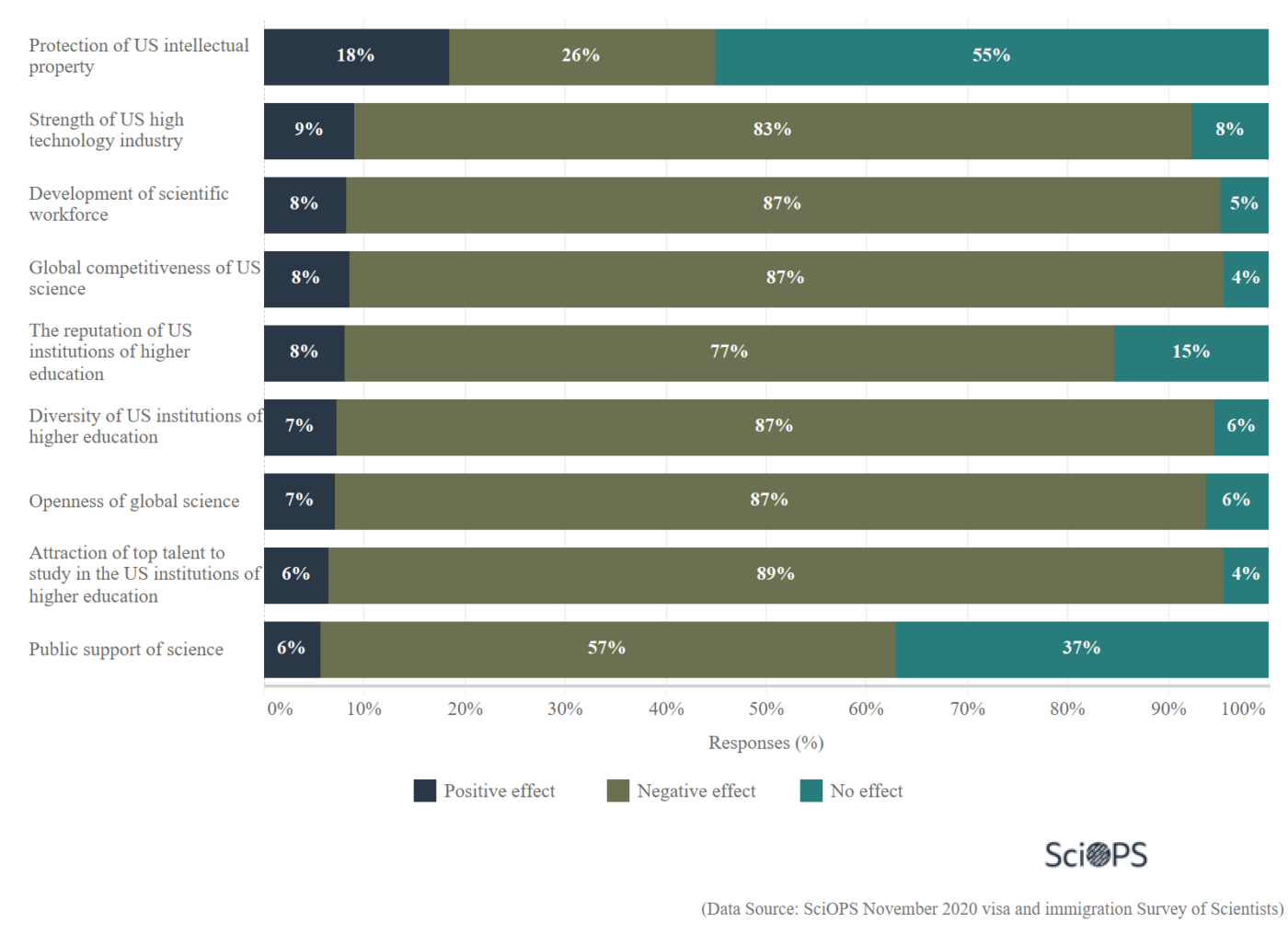
Few scientists see positive effects of visa and immigration policy on science and higher education.
Most respondents (89%) agree that current visa and immigration policies have negatively affected the attraction of top talent.
Most respondents also see negative impacts on the US high technology sector (83%).
Question
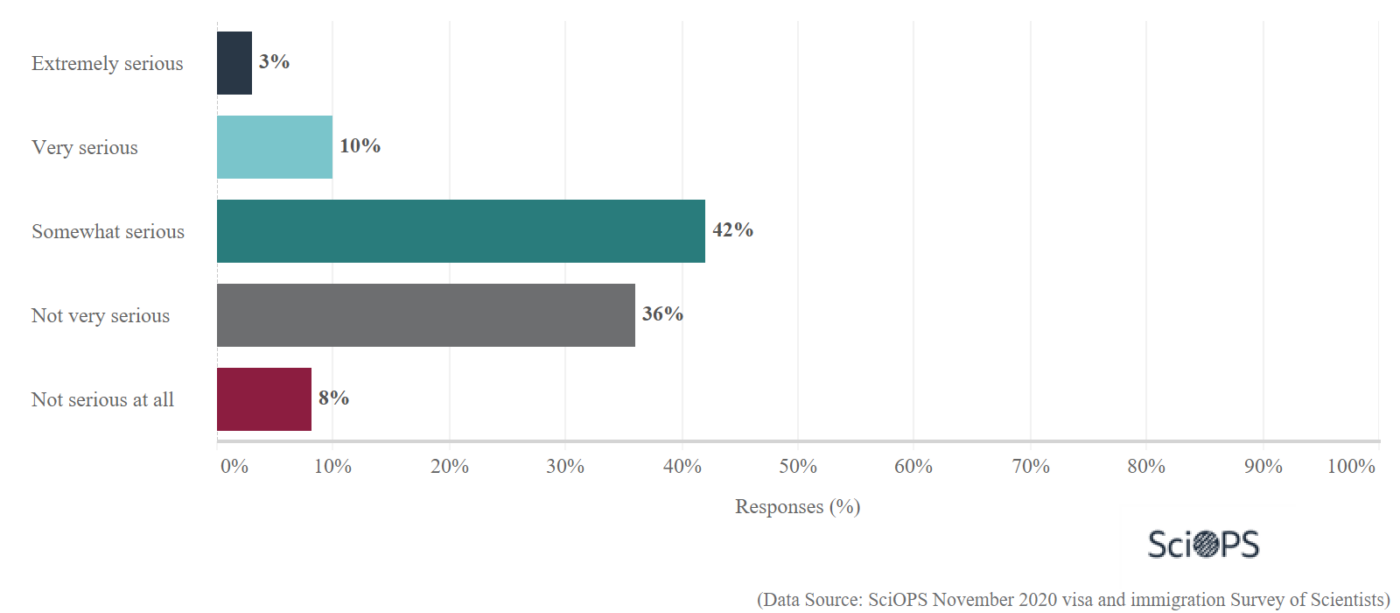
About 55% of scientists believe that the potential theft of technology and intellectual property by foreign governments is a serious concern for US universities.
Question
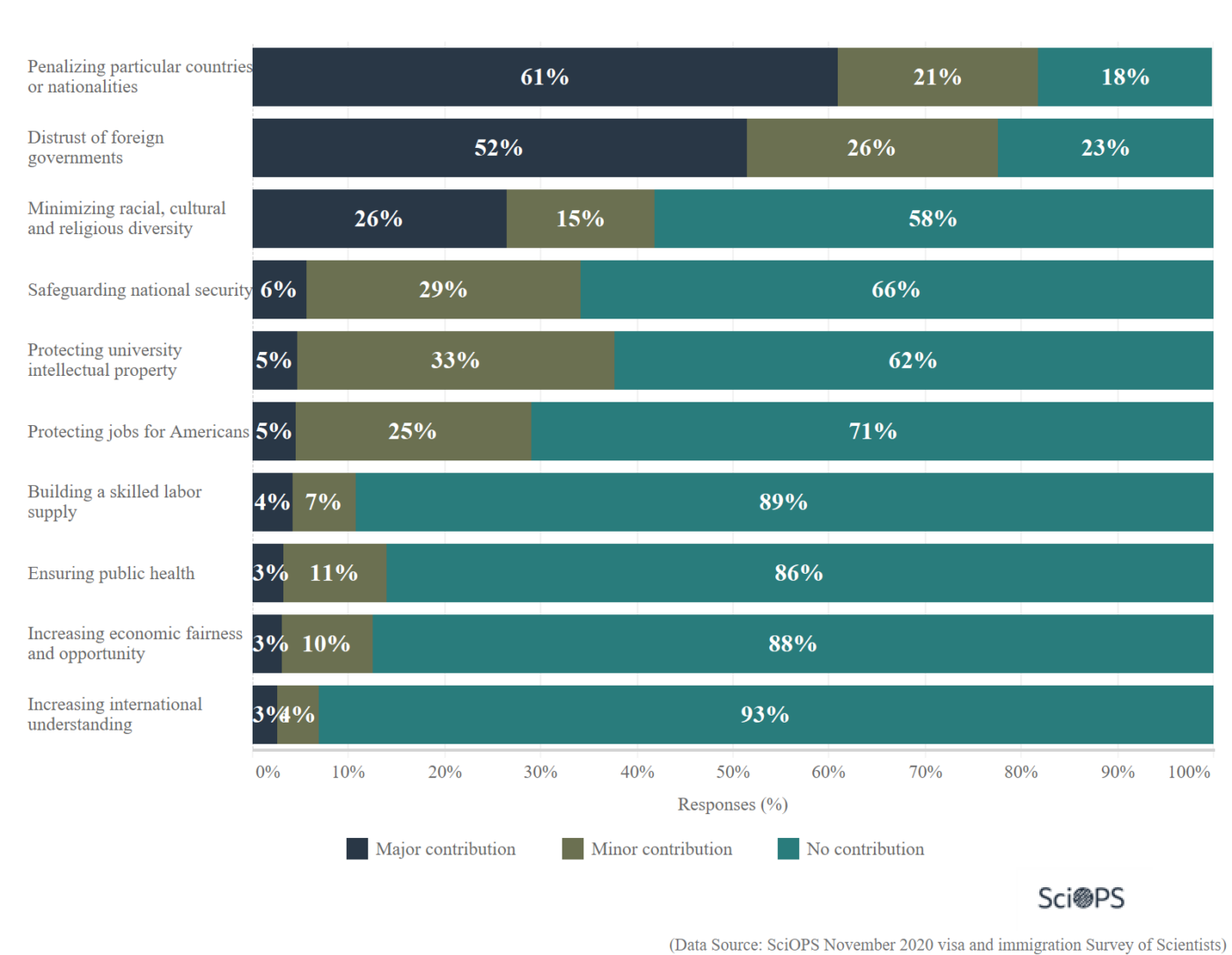
Most scientists believe that changes in US visa and immigration policies proposed by the Trump administration punish specific countries or nationalities (82% major or minor contribution).
Most also believe the policies will add to the distrust of foreign governments (78% major or minor contribution).
Only 3% of scientists responded that policies had a major contribution to protecting public health and only 5% stated policies protected intellectual property.
Question
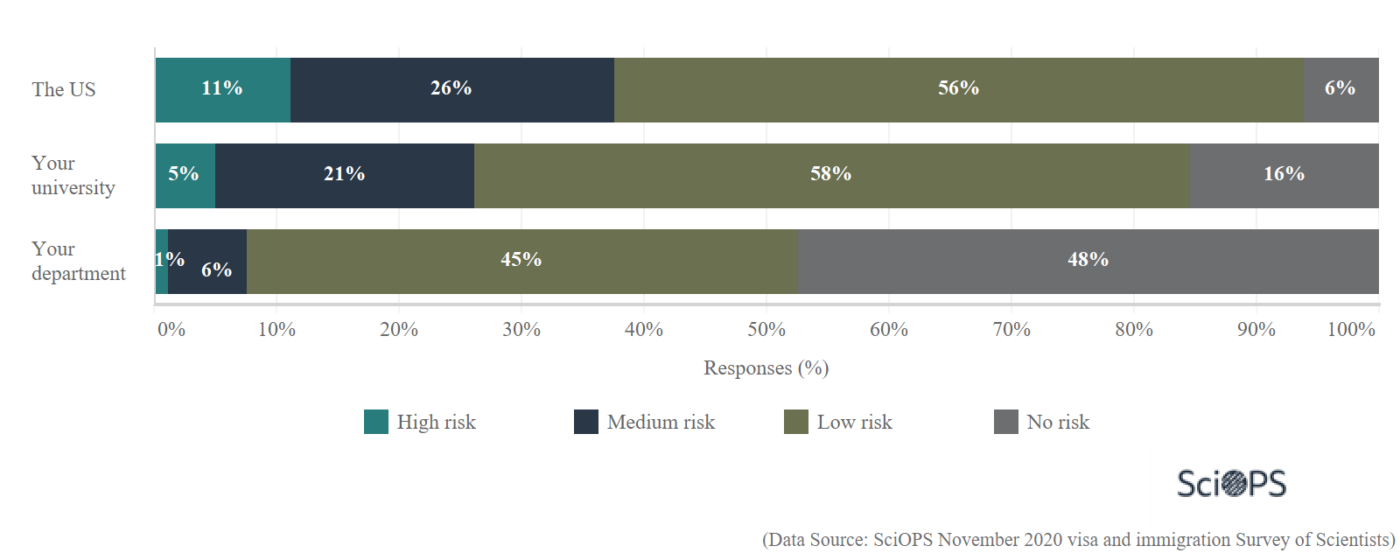
About 37% of respondents believe there is moderate to high risk of academic espionage in the US.
Scientists report lower levels of perceived risk of espionage at their particular university (26%) and in their department (7%).
Question

Among respondents, 13% are aware of academic espionage investigations in their university.
Question
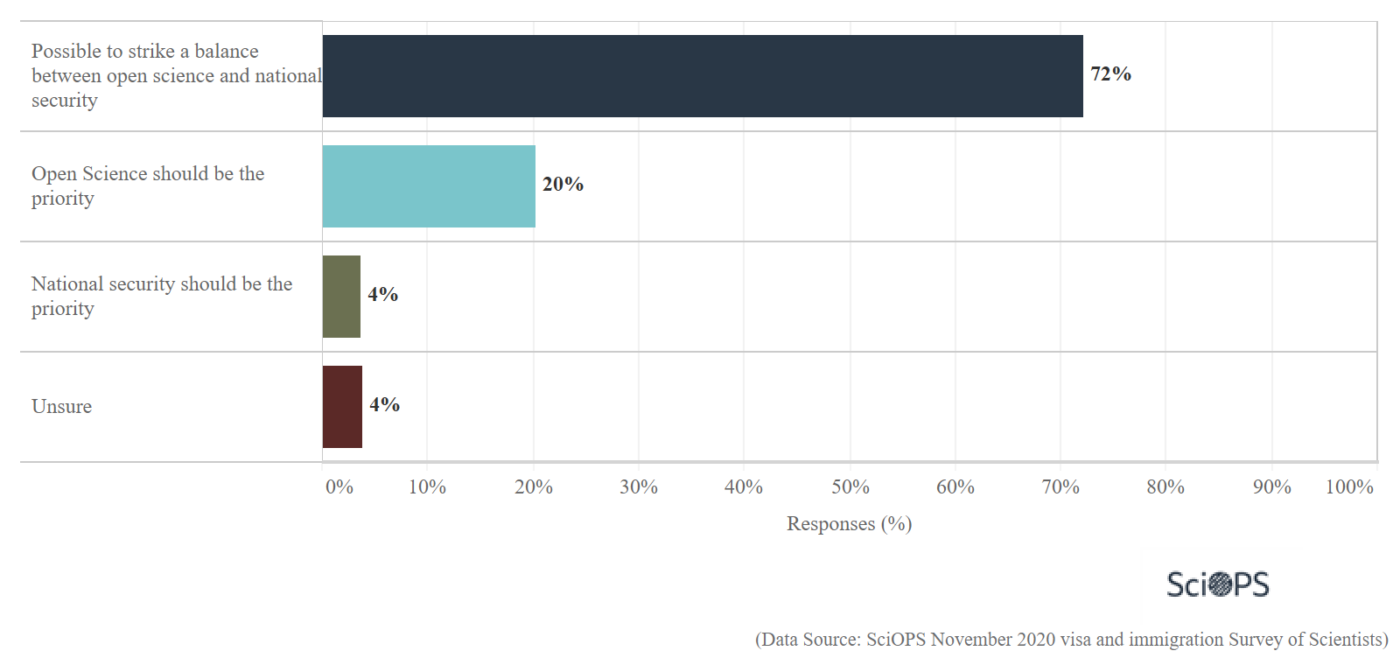
About 72% of scientists believe that it is possible to strike a balance between open science and national security.
20% of scientists think open science should be a priority over national security.
Survey Description
This national survey of biologists, engineers, and geographers on 2020 visa and immigration policy impacts was conducted by the Center for Science, Technology and Environmental Policy Studies at Arizona State University. The population for the survey represents a random sample of academic scientists (tenured, tenure-track, and non-tenure-track) who work in three departments (biology, civil and environmental engineering, and geography). These scientists work at 60 randomly selected universities classified as Carnegie designated research extensive (R1) universities in the United States. A total of 2,443 individuals were invited to participate in the survey via email invitations with a series of personalized email follow-up reminders. Survey invitations with a unique ID, passwords, and hyperlink to the survey were sent on October 22 and 23, followed by three reminder messages. The survey was closed on November 23rd.
A total of 419 usable responses were collected, representing an AAPOR response rate (RR4) of 17.4%. The survey sample was weighted by gender and academic field. The measure of sampling error for questions answered by the full sample is plus or minus 5 percentage points. The survey was developed by the team during September-October 2020. The questionnaire included sections asking about the impacts of current US visa and immigration policies on scientific research and collaboration, the higher education system, and different policy objectives over the past 12 months. The instrument was electronically programmed (in English) using the Sawtooth Software ® system. The survey was approved by Institutional Review Boards at Arizona State University and at the University of Illinois at Chicago.
